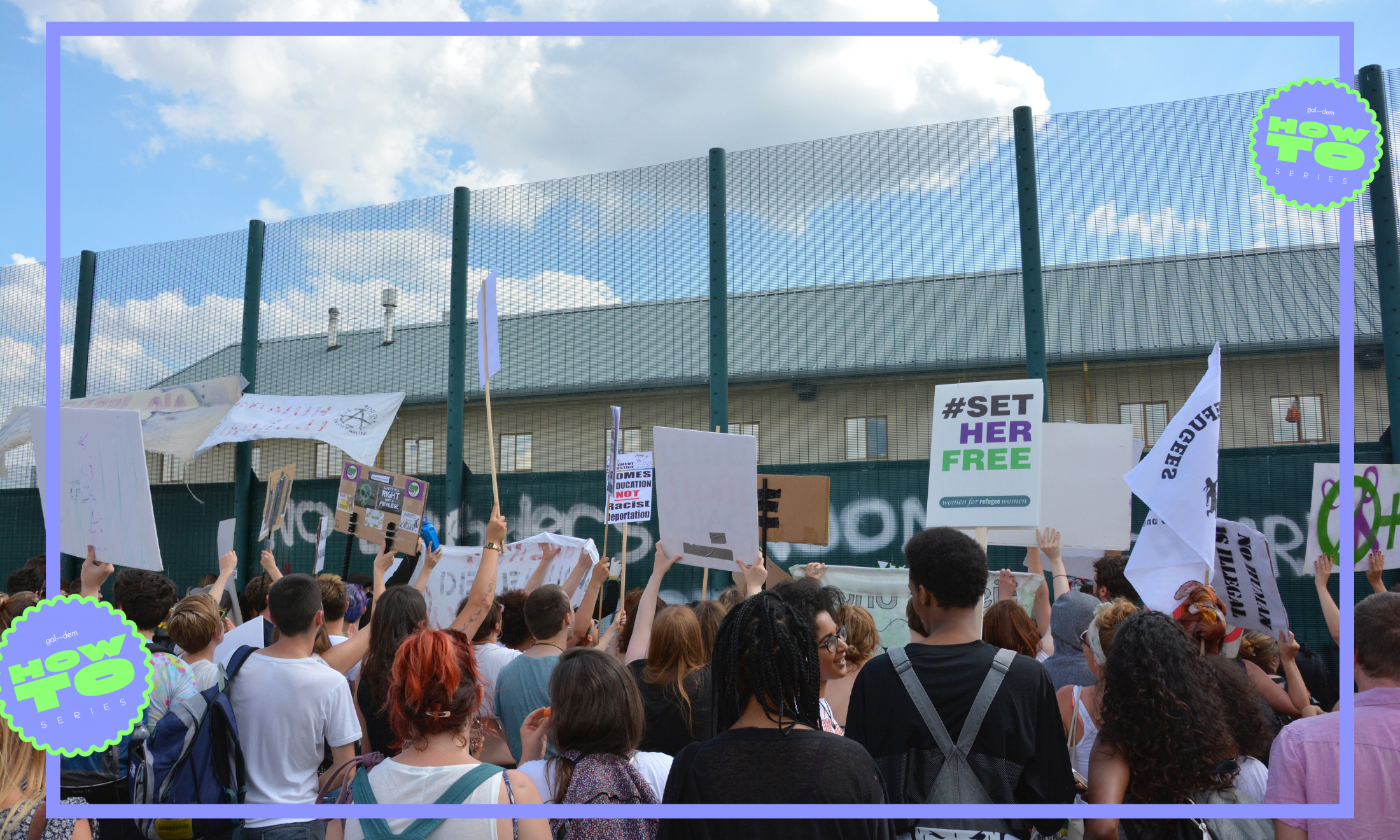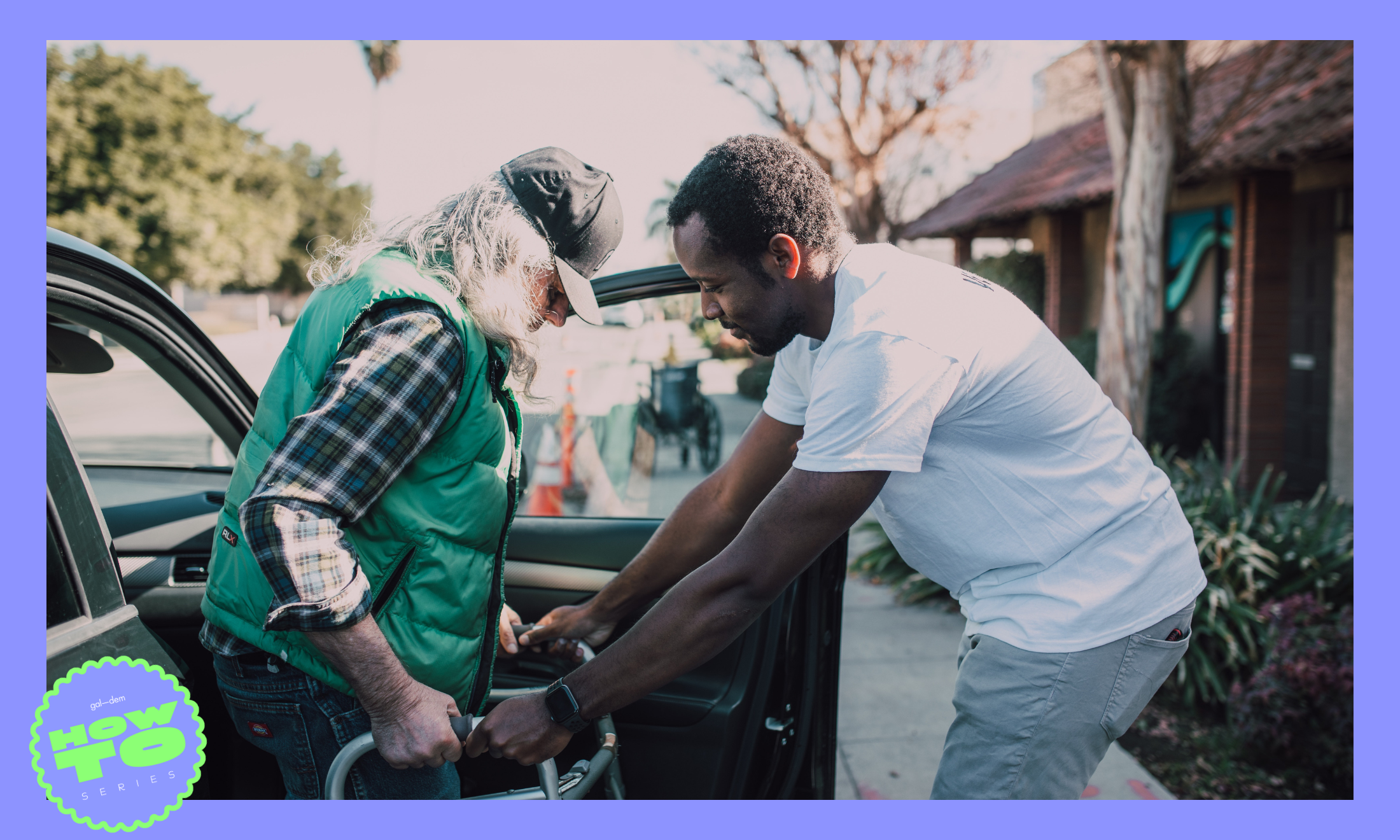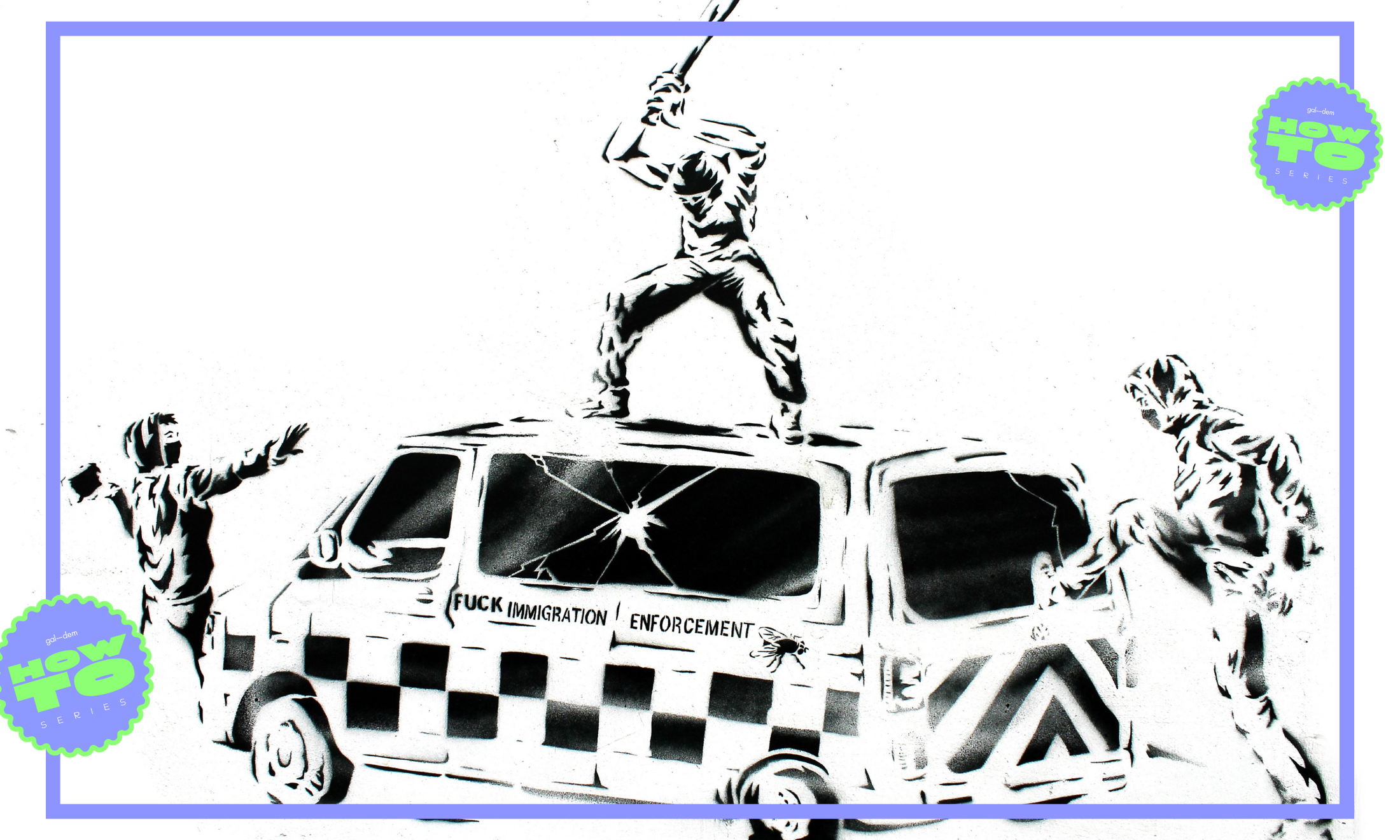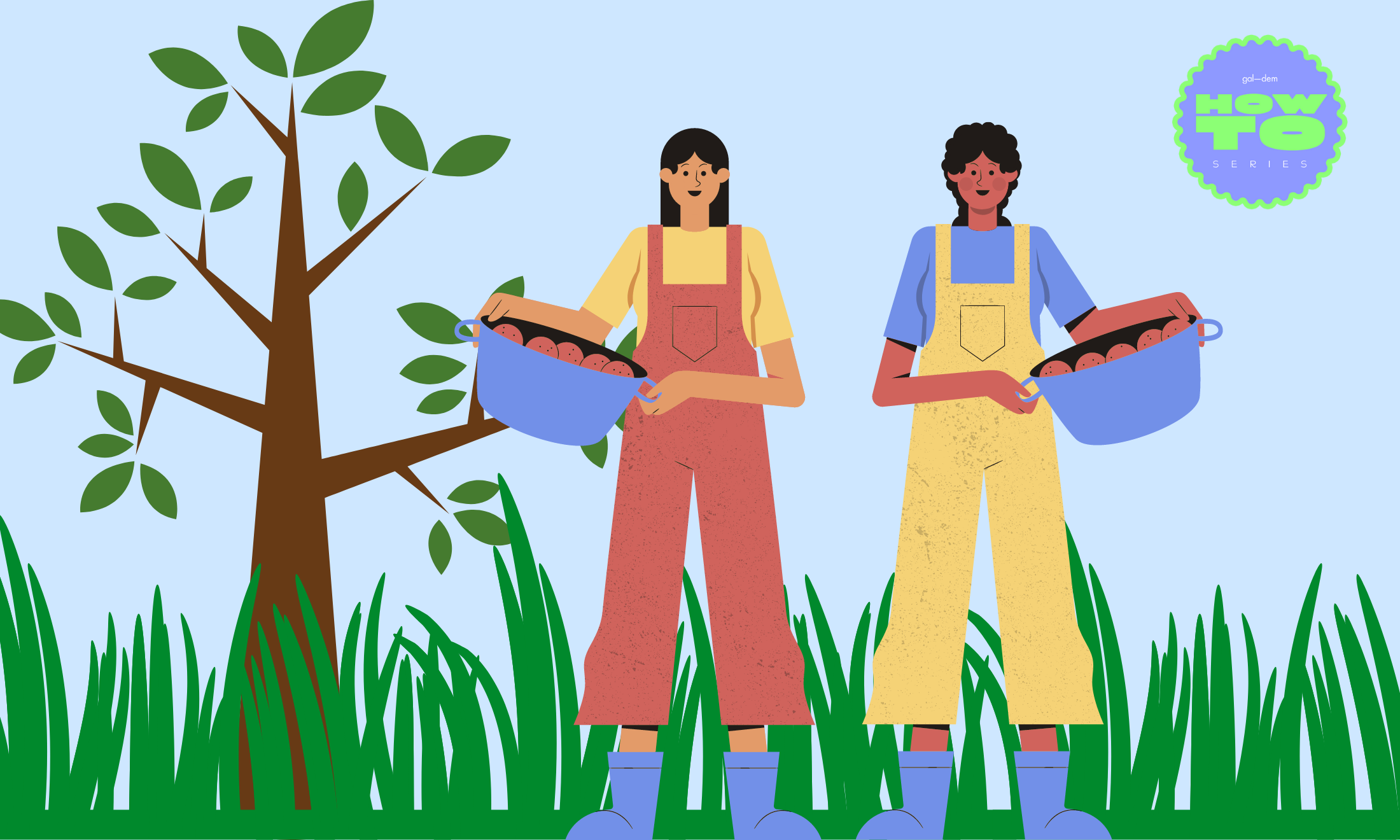The gal-dem guide to stopping a deportation flight
How To is a gal-dem series dedicated to demystifying practical steps involved in community activism.
Nadia Hasan and Zehrah Hasan
22 Aug 2022

Flickr/EYE DJ
On Tuesday 14 June, three young men who’d sought safety here were handcuffed, restrained and dragged onto the Tories’ first refugee deportation flight to Rwanda. Initially, 130 people were due to be on the plane. But thankfully, the flight never took off. Following weeks of public protest, a legal challenge, and direct action which bought people precious time to fight their cases, a court ruling helped ground the plane at the very last hour. The Court’s late night injunction was crucial, but it was people power that paved the way, and it is this, not just human rights law, that will continue to win us the rights, dignity and safety we all deserve.
Mass mobilisation against state deportation flights has long been a fundamental part of anti-racism resistance in the UK, and has predominantly been led by queer, racialised and working-class people. People in detention routinely resist, using forms of protest such as hunger strikes, from women in Yarl’s Wood in 2018, to people recently threatened with deportation to Rwanda.
In 2017, the Stansted 15 prevented a charter flight to Nigeria and Ghana from taking off by chaining themselves to each other under the plane, ensuring 11 people could continue their lives here. Their action followed successful resistance against charter flights as far back as 2009, when an anti-deportation group blocked a charter flight to Iraq. More recently, groups like SOAS Detainee Support, LGSM, Stop the Plane, No to Hassockfield and Stop Deportations have successfully prevented forced deportations through phone blockades (collective call-ins demanding airline companies don’t fly deportees), road blockades and public airline shaming campaigns.
Through community resistance, we can help ensure families and communities are kept together and that people who’ve come to build their lives here have the support, networks and care they need to thrive.
What are deportation flights?
The word ‘deportation’ usually refers to the government’s forced removal of people who don’t have the right to remain, according to the Home Office. Technically, the word only refers to the forced removal of people convicted on criminal charges, rather than those being removed on immigration grounds, like overstaying their visa. But in practice the term is used much more broadly, to describe a system of violently forcing people from their homes, their families and their lives, to countries where they may be unsafe, unsupported and isolated.
Although the government has recently begun to deport more European migrants, a large share of people facing deportation are from South and East Asian, Middle Eastern, African and Caribbean countries, often from Britain’s former colonies. Many have lived in the UK for several years, if not decades, like the grandmothers and mothers the government deported to Nigeria in June. Others were born here, or moved here as children, but face separation from their families and deportation because of a criminal conviction, like the Jamaica 50 – men who the Home Office tried to deport last November, many of them fathers to children in the UK. Over the past few decades, successive governments have made it increasingly hard for Black, brown and racialised people to maintain their right to remain here. Sky-high visa fees, more temporary visa permits, and laws denying people birthright citizenship, mean that more people now risk detention and deportation.
“After one flight is stopped, our resistance does not end there”
Such changes are exacerbated by the government, who this year ushered in the draconian Nationality and Borders Act, a law that criminalises and discriminates against refugees based on how they entered the UK. Without creating safe, accessible routes for people seeking sanctuary here, the government forces families to make these perilous journeys, and is now also subjecting people to detention and the threat of deportation to Rwanda once they arrive.
Who carries them out?
The government uses a variety of different airlines and airports to carry out deportations. Sometimes, it uses commercial carriers like British Airways and Easyjet to forcibly transport people alongside other scheduled passengers. In other cases, they commission mass charter flights through more specialist airlines like Privilege 757 or Titan Airways. The government also relies on outsourced security guards from private firms like Mitie, G4S and Serco to help them carry out removals.
How can they be stopped?
A key part of successful resistance is building power. Hundreds joined together in Scotland and London to stop their friends and neighbours being torn from their communities as part of the anti-raids movement. Over the summer of 2022, SOAS Detainee Support, Migrants Organise and a number of other groups, including the Joint Council for the Welfare of Immigrants (JCWI), also called on people to protest outside their nearest detention centre, in solidarity with those inside facing the threat of deportation and to decry the racist Rwanda scheme.
The starting point for all of us is to join these calls for action and show up with our family, our friends and our communities to stand against all deportations. Every part of this violent system is connected, and this is why joining your local anti-raids group, joining or forming a direct action group to stop a flight, like Stop Deportations, or directly supporting people in detention, for instance with SOAS Detainee Support, are equally vital parts of our collective resistance.
Another way to challenge deportations is to support legal interventions against them – used in the recent Rwanda flight resistance, with the European Court of Human Rights ruling that a significant legal challenge against government plans must be heard before anyone is removed. You can support the crowdfunder for Detention Action’s legal challenge here.
What are the options for campaigning?
If you want to join a direct action group, start by attending a meeting organised by one of the existing groups, or set up a secure meeting with some trusted friends and activists to plan one yourselves.
Being part of a direct action or protest involves lots of different roles, both on-the-ground and remote, which are all crucial to its success. Whether it’s putting your body on the line, mobilising people to go down to support, sharing details of what is happening with the public, offering on-the-ground support or arrestee support with groups including Green and Black Cross, legal observing with Black Protest Legal Support, or helping with logistics and planning, it takes a community to stop a deportation and to keep each other safe in doing so.
It is, however, important to acknowledge that some direct action tactics, for example a ‘lock on’ outside a detention centre, or blockading a road, come with the risk of criminalisation; a risk which will inevitably be higher for communities who are racialised, oppressed and targeted by the police and the criminal ‘justice’ system. (For more information look to resources created by Netpol.) Some forms of direct action are also not accessible to people with disabilities, for example if it involves lying on the road for hours on end or having chains locked to parts of the body.
There are also ways of resisting beyond direct action, including undertaking digital campaign actions to target airlines hosted by the JCWI, Freedom from Torture and Detention Action. You can join protests outside the Home Office, embassies and Parliament, and support people in your local community through anti-raids networks, Cop Watch, the London Renters Union No Borders in Housing group, and migrant-led trade unions such as IWGB.
It’s also vital that we continue to share knowledge with one another. You could host a learning event at your local school, community or faith group, set up a reading or discussion group, and build power within your workplace or union. There are some ideas on how to do this in relation to the hostile environment (but also stopping deportations) in JCWI’s ‘Resist and Persist’ toolkit.
What happens after a flight is stopped?
After one flight is stopped, our resistance does not end there. We must work to dismantle every part of the system that enables people to be left destitute in their communities, raided in their homes, detained for years on end, and sent across the world away from their loved ones.
Even after people are taken off planes or their tickets cancelled, they continue to face immigration controls and a battle for their safety. Many often end up back in detention. Even if released, they are surveilled, barred access to work and support, and forced to regularly travel across the country to report to the Home Office. They also continue to fight legal cases against their deportation, and remain at risk of being re-detained.
Building a movement against deportations is not only about grounding flights – it’s also about ending the hostile environment, ending detention, resisting raids, and providing material solidarity and support to people in our communities harmed by the UK’s brutal and racist immigration policies.
Whilst more and more people come together to stop people being boarded onto planes, we must also unite to stop them being placed through the trauma of detention and deportation threats in the first place. There are hundreds of people already organising collectively to do this, and it’s time every single person who stands against this oppressive system plays their part. In the words of bell hooks: “true resistance begins with people confronting pain… and wanting to do something to change it.”
Nadia is communications officer at the JCWI, and Zehrah is the JCWI’s advocacy director.
Our groundbreaking journalism relies on the crucial support of a community of gal-dem members. We would not be able to continue to hold truth to power in this industry without them, and you can support us from £5 per month – less than a weekly coffee.
Our members get exclusive access to events, discounts from independent brands, newsletters from our editors, quarterly gifts, print magazines, and so much more!

Britain’s policing was built on racism. Abolition is unavoidable

How Pakistan’s Khwaja Sira and transgender communities are fearing and fighting for their futures

Their anti-rape performance went viral globally. Now what?






